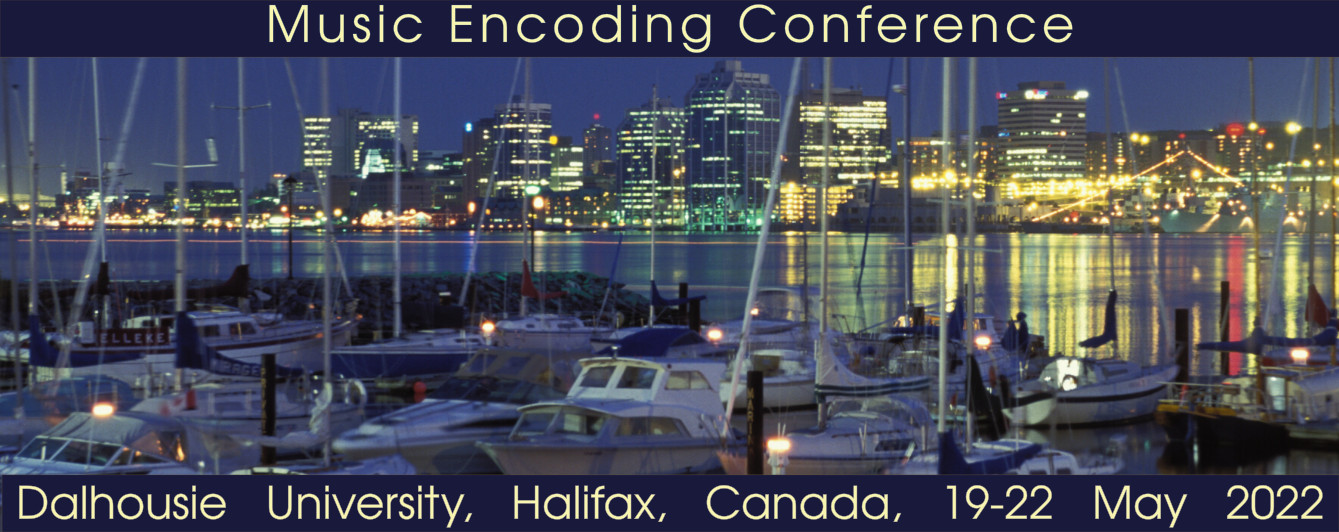
We are pleased to announce our call for late-breaking reports for the Music Encoding Conference 2022.
The Music Encoding Conference is the annual meeting of the Music Encoding Initiative (MEI) community and all who are interested in the digital representation of music. This cross-disciplinary venue is open to and brings together members from various encoding, analysis, and music research communities, including musicologists, theorists, librarians, technologists, music scholars, teachers, and students, and provides an opportunity for learning and engaging with and from each other.
The MEC 2022 will take place Thursday 19th – Sunday 22nd May, 2022, at Dalhousie University, Nova Scotia, Canada. The Conference will run in hybrid mode, allowing remote attendance where travel plans are affected by the ongoing pandemic.
A wealth of information about attending MEC 2022 is available from the Conference website.
Late-breaking reports (LBR) offer submitting authors an opportunity to share new work on relevant topics, with a special focus on experimental ideas, novel perspectives, early-stage research, and late-breaking developments.
LBR submission requirements are intended to provide a low barrier of access to community feedback, with shortened page-length prescriptions and a simplified review procedure compared to submissions to the regular conference programme.
Following the conference, authors of accepted LBR may choose to submit camera-ready versions of their submission for inclusion in the conference proceedings. The MEC proceedings will be published under an open access license and with an individual DOI number for all papers. Note that late-breaking reports will be marked as "not peer-reviewed" in the proceedings due to the reduced LBR review process.
LBR submissions should be formatted in A4 size with 2.5cm margins, font size 12, single space, justified, in a sans-serif typeface (e.g. Calibri) according to the MEC 2022 LBR Submission Template.
Please note the deadlines for the submission process outlined under Important Dates below.
20 March: Early-bird conference registration deadline.
3-19 April: Submissions of late-breaking reports. Notifications of acceptance (pending light review) will be provided within 3 working days from submission.
18 May: Final registration deadline (in-person attendance).
19–22 May: Conference.
5 June: Final upload of camera-ready papers for publication in the proceedings. Camera-ready versions are welcome to incorporate light modifications in response to feedback obtained during the conference.
The Conference welcomes contributions from all those who are developing or applying music encodings in their work and research. Topics include, but are not limited to:
and the use or application of music encodings in:
While we look forward to welcoming as many of you as possible in person at Dalhousie University, we are preparing for MEC ‘22 within the context of ongoing uncertainty due to the Covid-19 pandemic. To allow the community to best accommodate to this situation, we are organising this year’s conference with the following commitments in mind:
Additional details regarding registration, accommodation, travel, and Covid guidelines are available on the conference web page.
In case of questions, feel free to contact: conference2022@music-encoding.org.
 The Music Encoding Conference is supported in part by funding from the Social Sciences and Humanities Research Council of Canada.
The Music Encoding Conference is supported in part by funding from the Social Sciences and Humanities Research Council of Canada.